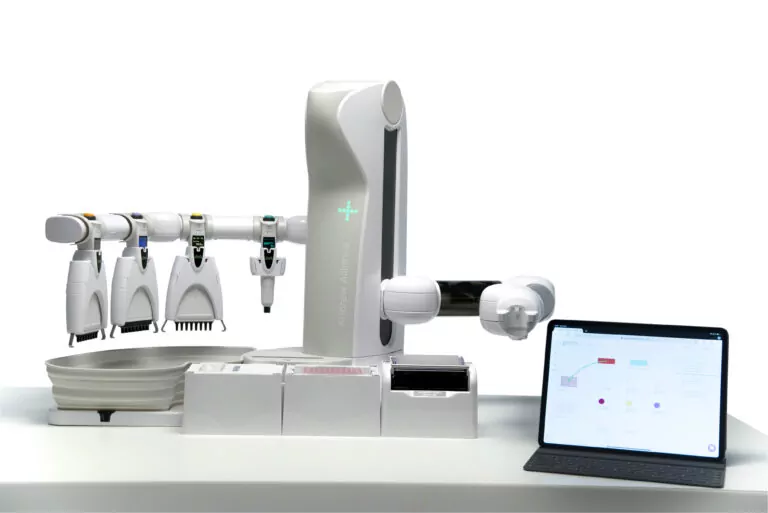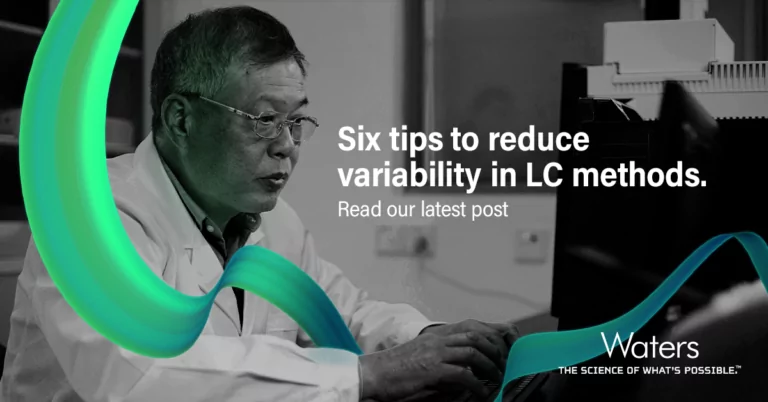-
Improving, Retaining, and Separating Polar Compounds Using Chromatographic Techniques
Separating and retaining polar compounds are significant challenges in chromatography. Here, we explore the key technical considerations and solutions for effectively handling these compounds, focusing on advanced chromatographic techniques and column technologies. What Are Polar Compounds? Polar compounds are essential in biological processes, drug design, and industrial applications due to their ability to interact with…

Recent Posts
In the Fight against COVID-19, Science is Surging!
This blog was originally posted on LinkedIn From the very beginning of the COVID-19 pandemic, we knew our customers would need an unprecedented amount of scientific and technical support. That is why we quickly created a “COVID-19 Innovation Response Team” to bring Waters’ industry-leading expertise to the forefront of the global scientific surge to quickly and effectively...
Setting a New Bar for Benchtop Automation
Laboratory automation is quickly becoming a critical component of the modern lab, streamlining pharmaceutical, life science and analytical LC-MS workflows. Automation of routine and complex sample preparation helps minimize variability, improve traceability and simplify method transfer, ultimately bringing improved efficiency to the lab and allowing scientists to spend more time on value-added tasks. Despite this,...
Waters Introduces STEM Live: The Science of What’s Possible for Kids
In an earlier blog, we discussed how the skills that students develop in science, technology, engineering and math—disciplines collectively known as STEM, are more important than ever. At Waters, we are actively engaging in global, on-site STEM-focused training programs for young students through collaborations with NGOs like Junior Achievement. These programs often include classroom-based learning,...
Navigating the Uncertainties of the Nitrosamine Impurity Crisis
The nitrosamine impurity crisis continues to be on the mind of every stakeholder involved in the development and manufacturing of affected drug products. In our interactions with key opinion leaders and those in the lab having to develop and validate nitrosamine testing methods, we’ve come across a few common questions that we want to address here
Data Integrity Matters: Unknown, Unintegrated or Undetected Chromatography Peaks
In an earlier blog, I discussed the concerns about extraneous peaks that might appear in LC separations. While there can be many sources for peaks unrelated to the test substances, how do you decide which are legitimate, and which are an indication of poor quality? Which are harmless and which are dangerous? Which are expected...
Controlling Analytical Method Variability with Key Approaches to Sample Handling and Preparation
Sample handling and preparation can have a substantial effect on an analytical method’s variability and data quality. It is important to consider and address the risks associated with sample preparation as part of the method development process. This requires carefully designed and executed experiments and clear documentation in the method to give the analyst an...
Popular Topics
ACQUITY QDa (17) bioanalysis (11) biologics (14) biopharma (26) biopharmaceutical (36) biotherapeutics (17) case study (17) chromatography (14) data integrity (23) food analysis (12) HPLC (15) LC-MS (22) liquid chromatography (LC) (21) mass detection (16) mass spectrometry (MS) (54) method development (13) STEM (12) sustainability (12)





